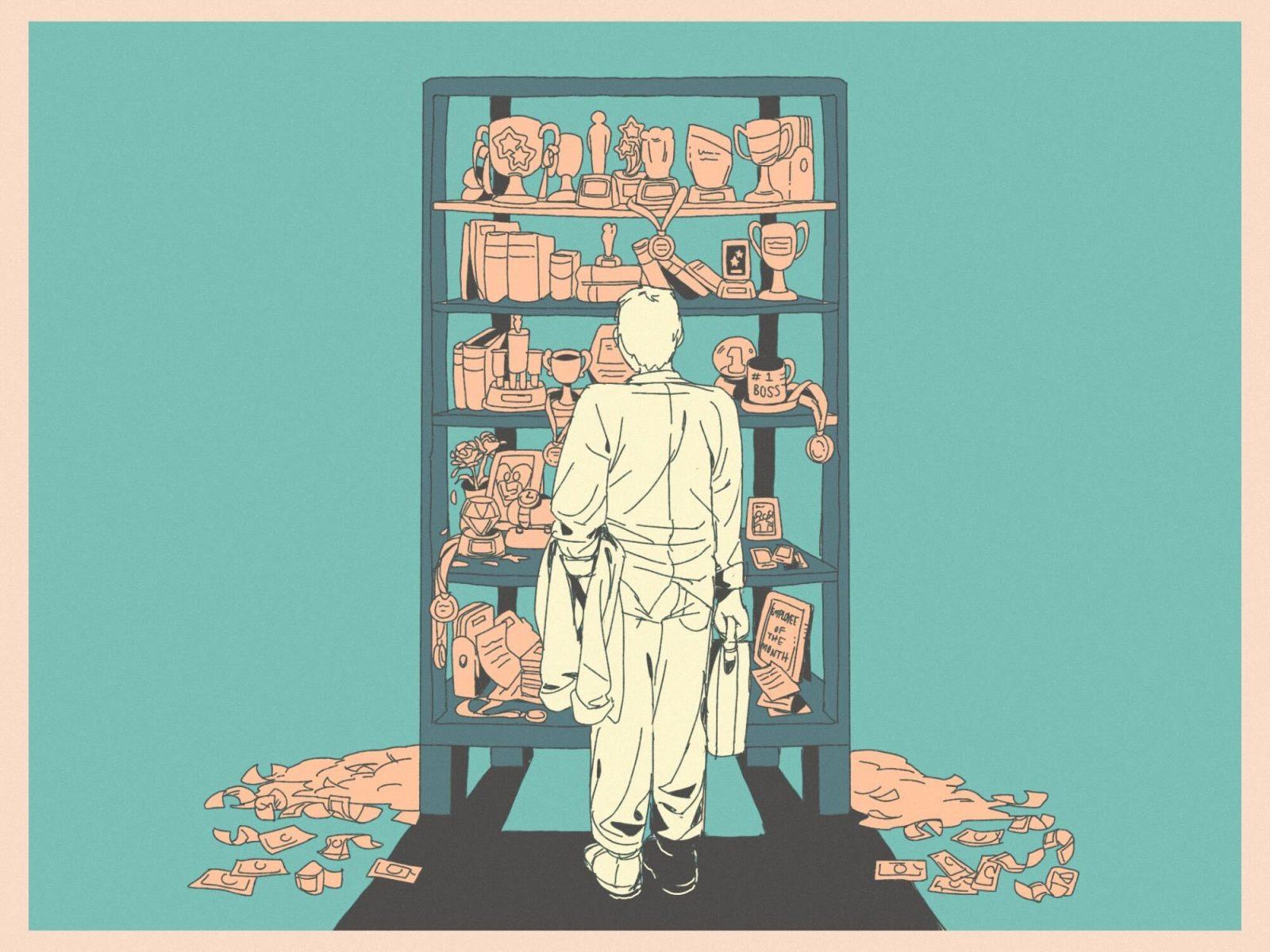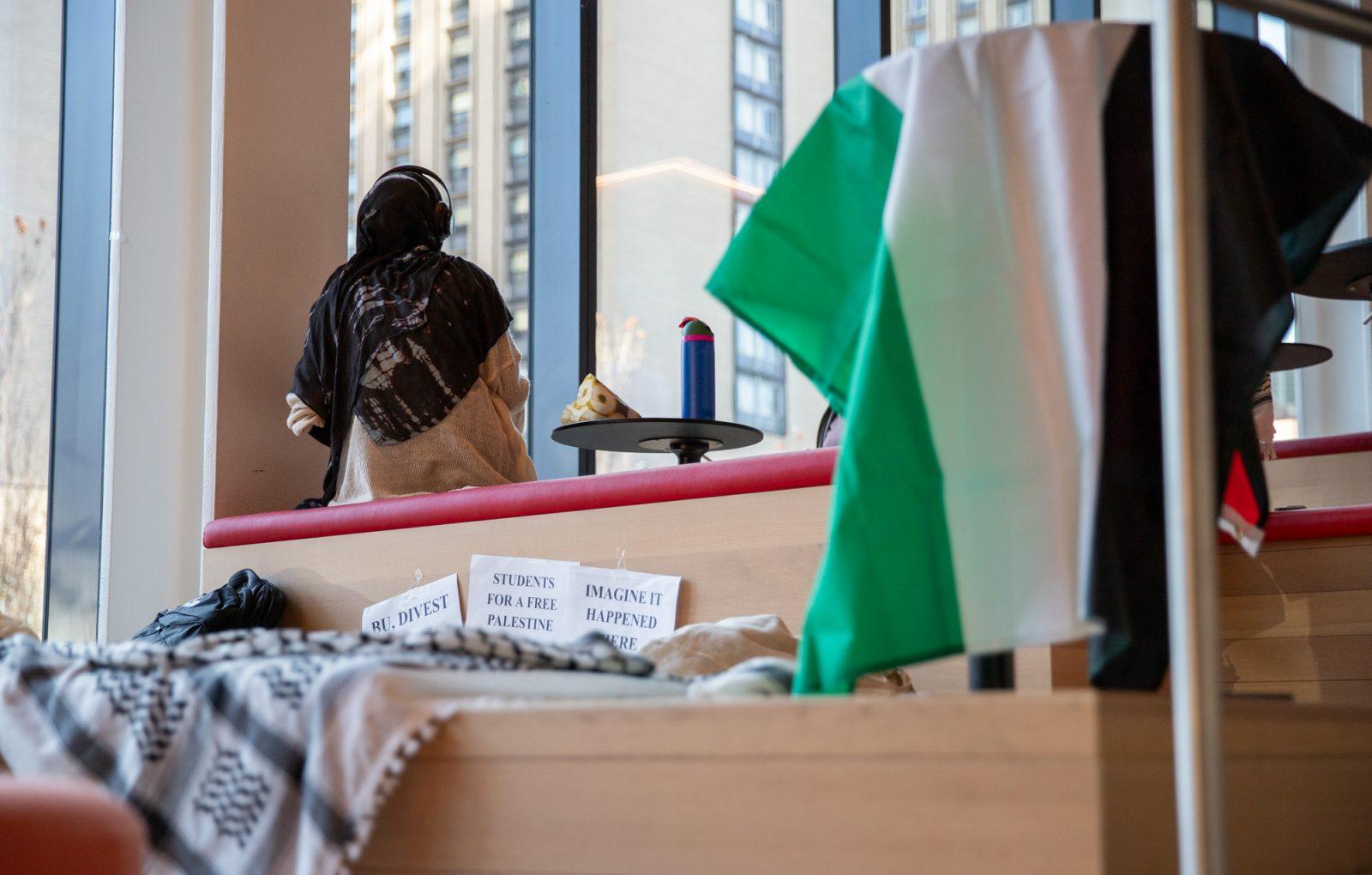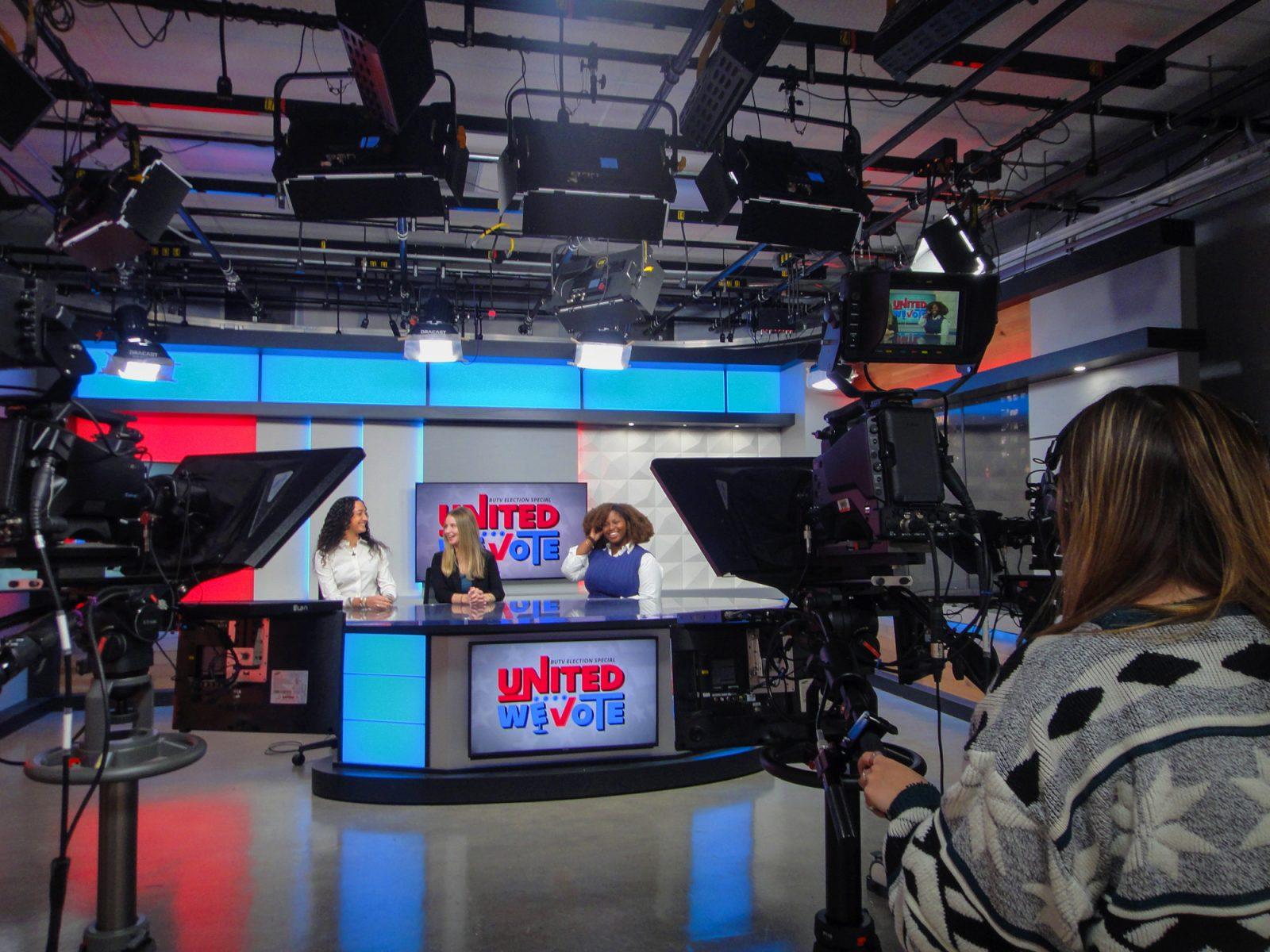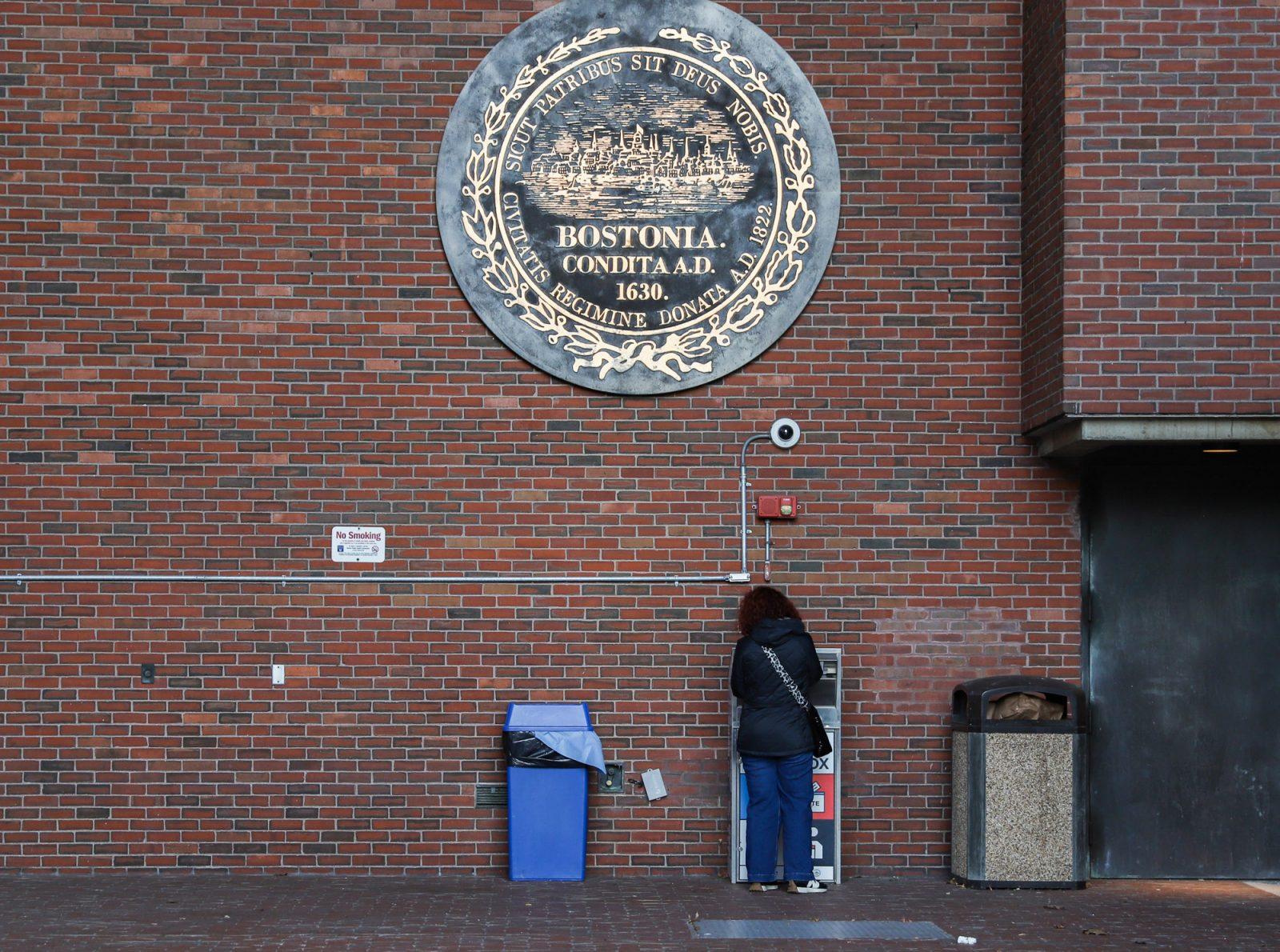By Sydney Topf and Lindsay Shachnow
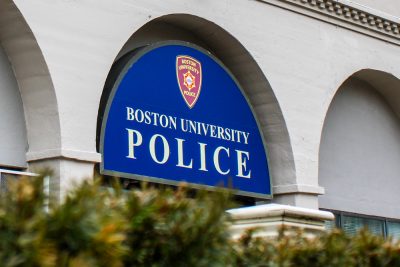
With a doctorate from New York University, a law degree from Massachusetts School of Law and a 22-year stint in law enforcement as a campus security officer and later superintendent of operations for the Cambridge Police Department, Robert Lowe began his new position as the chief of police of the Boston University Police Department on Aug. 1.
The Daily Free Press campus news editors met with Lowe to discuss his new position, including what prepared him for this role, what he hopes to accomplish and responses to campus safety incidents and students’ concerns from last school year. Excerpts have been edited for length and clarity.
What are some of your goals as the new chief of BUPD? How will you instill trust between BUPD and the BU community?
Lowe: In the short term, intermediate and then long term planning, safety is always paramount for my leadership team, as well as our police department… It’s really important that all of our students, faculty and staff feel like they belong here on campus. And so thinking about “How do we create inclusive organization practices?” like “How do we do that in a thoughtful way so that everyone feels welcomed here on campus?” is a priority in the short term.
I would say for intermediate steps…one of the things that I keep hearing is that officers want to engage more with the community. One of the things that I hear from the community is that they want to engage more with the officers… So we’ll be exploring ways on how to do that. One of the models that I’m an advocate for is called the Neighborhood Policing Initiative. That’s a really effective framework in terms of pulling the best pieces of policing together…In my previous role in Cambridge, I had a lot of experience with working with communities, especially communities that are underrepresented. We want to make sure here at the police department that we’re supporting those voices that aren’t usually heard in the community, and so whatever we can do to do that, that’s the work that we want to partake in.
In terms of long term planning, strategic planning and thinking about the vision of this police department and what it’s going to look like in five years and connecting that vision to the strategic priorities of Boston University in general.
Your NYU dissertation was entitled “Reducing the Influence of Implicit Bias in a Municipal Police Department.” How do you plan to implement your examination of implicit bias in police officer decision making in your role at BU?
Lowe: I had an incredible opportunity to interview 30 police officers that participated in my research on two occasions. I completed 60 total interviews and so to be able to listen to the officers’ experiences during the pandemic, in the civil unrest that followed the [George] Floyd murder, it was just an incredible experience … Being able to bring that skillset here to the Boston University Police Department is something that I’m really excited about… For me, how I bring that here to the police department at BU is having conversations with the officers, our professional staff, about this concept of implicit bias and how it impacts our decision making.
One of the things that we found when we did a similar project in Cambridge was the officers’ attitudes towards diversity training shifted in a significant and positive way. What we learned was when you have these conversations in a certain way that’s grounded in science, objective and engaging, the conversation can be very productive, and the officers really respond well to it… I would hope that a lot of the information that I learned from my dissertation, I’ll be able to apply those methods in here.
Gun violence on college campuses has been increasing and so have students’ concerns about their safety in light of the recent UNC shooting and the MSU shooting from last year. There was a hoax shooting threat at BU last year and students shared their concerns about the risk of shootings on campus and BU protocol — are you looking to change BU’s active shooter protocols and how are you planning to address students’ concerns about this?
Lowe: This is something that keeps me up at night, but I’m confident that the work that we’re doing in the police department and throughout the University is putting us in a very strong position to be able to not only prevent these incidents from occurring, but if they do happen, the officers have all the resources that they need to be able to stop a threat that happens on campus.
We continue to ask students and all of our community members that if you see something to say something, however small that may seem to you, it may be a big deal to us … We’re doing a lot of work in terms of training our officers and making sure that they have the tools and resources that they need to be effective in a situation like that. A big part of that too, is the information sharing throughout the law enforcement community and the relationships that we have.
Being able to be on the phone with a colleague from Michigan State to have a conversation about lessons learned so we don’t have to go through the same thing is really effective … our view is going to put us in a better position to be able to respond and prevent these incidents from happening…I feel like at this moment we have a strong protocol in terms of warning our stakeholders in the event this incident occurs and then how we as an emergency response team are going to respond to those incidents as well.
Going on this last question, there were many “swatting” incidents on college campuses across the U.S. last year, with one also happening right across the river at Harvard. How will BUPD evaluate threats under your leadership?
Lowe: The swatting thing is an issue that we’re watching very closely. We share and learn from our partners in law enforcement not only locally but regionally and nationally and so the training that happens around that is specific towards swatting incidents … We’ll respond to [calls] and make sure people are feeling safe but in that context, we are also aware of the phenomenon that you’re referring to as “swatting” … It’s very difficult, it’s complex, but I feel like the officers have the training and education that they need to to be able to respond in those moments.
Students, faculty and staff expressed discontent about BUPD’s handling of the death of a 33-year old man from the top floor of Stuvi II. How would you have handled this situation and communicate better with the BU community?
Lowe: I’m not sure. Again, I’m still learning and listening that I have all the details of that particular case. But I can just say generally speaking, we are here to support our community members … If there are specific concerns that were raised, I’d be happy to hear those just to make sure if there are any opportunities for us to improve in the way that we’re responding to these calls.
How will the new SAFE (Safety Awareness for Everyone) resource — an elective, online training module — provided by BUPD prepare BU students for an active emergency? What inspired creation? Is it mandatory?
Lowe: In terms of preparation, I think education is one great way to prepare our community stakeholders for a critical incident in that way … We don’t want individuals to be paranoid, but we do want our community to be educated and aware. The SAFE videos are a great way for us to accomplish that goal.
In terms of what initiated the SAFE videos, I’m not sure if there was a specific incident. I just think generally speaking we’re seeing a lot of these incidents nationally. Just in general, it’s good for us as a University and a police department to be thinking about making sure that all of our community stakeholders have the resources that they need to be educated.
Last year concerns about drinking spiking were on the rise in Boston, with Boston city council convening a public safety committee last year to discuss the issue. BPD issued a warning for drinking spiking last year and, anecdotally speaking, colleges are saying drink spiking is on the rise. What would you say to students who are concerned about this and how will you address and prevent sexual assault in your new role?
Lowe: For drink spiking, what we’re asking individuals to do is to just make sure that they’re not leaving things unattended. When we talk about student safety, we’re asking our students and community members … to use the buddy system as best you can. If you have to be out late at night, just have one Airpod in and not two. Don’t be so focused on your phone that you don’t realize what’s happening around you. Boston is a safe city. The Boston University area is a safe community and safe campus, but we are in a city, right? We just need our community members to be aware.
In my role in the Cambridge Police Department, I’ve had a lot of experience in overseeing sexual assault responses, and so we want to make sure that we’re supporting everyone here on campus … We want to make sure that we’re doing everything that we can and support individuals that are reporting that to us and so I’m still learning what the procedure and the process is here on campus … We’re going to continue working with our partners here on campus to make sure that students have the support and resources that they need.





















































































































